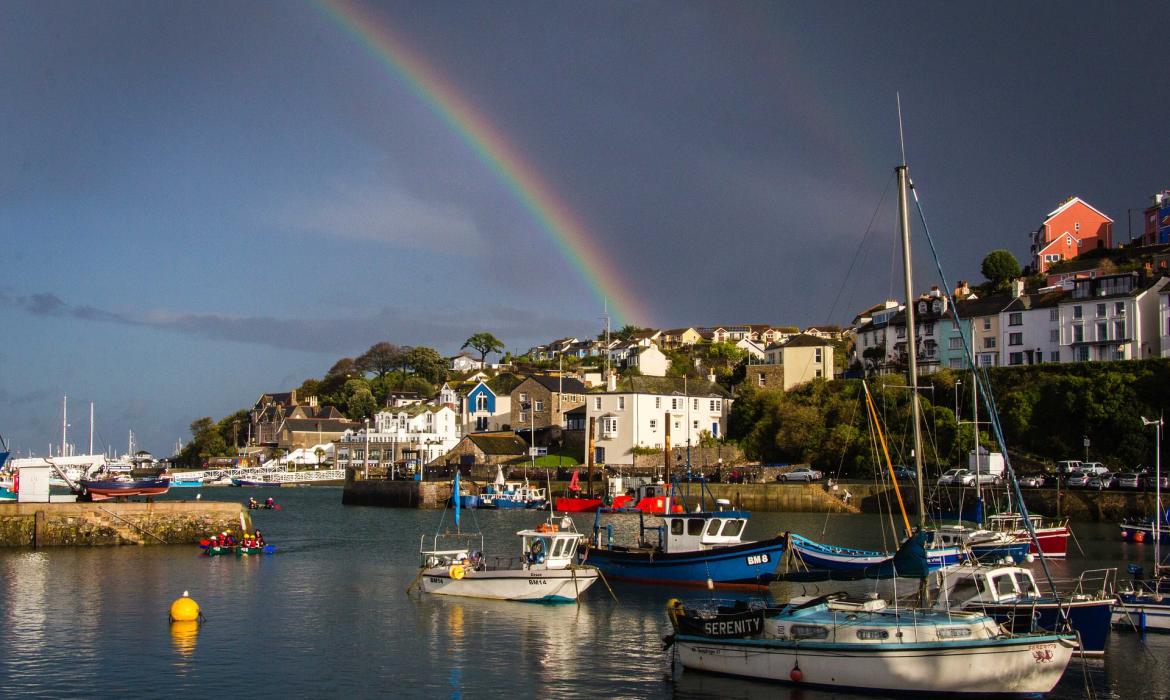Taking responsibility for 20-odd students in a foreign country does sound like a bit of an unwise thing to do, but it seems it has become a tradition at our school.
Why spend the whole summer in Croatia when you can take your students to Britain? Sounds a bit crazy, I know, and it did sound crazy to us, the four teachers from Luka Primary School in Sesvete, Zagreb, when we first heard of it.
It all began four years ago… Our colleague Lana Duka Zupanc returned from Devon, England, where she attended a teachers' summer course organized by SOL (the Sharing One Language organisation, check out their stand at the annual HUPE conference!). We googled them and found out that they also offer summer courses for children. And being teachers who are always looking for new ways to help our students improve their English, we thought why not take them on a summer course in Devon? After lots of preparation and with the help of one of our Croatian SOL coordinators, Ms Irena Holik, we organised our first trip to England in 2013. It was an overwhelming experience in many ways, and after coming back to Croatia the four of us sat together and agreed that we should take turns in taking the students to England.
The summer of 2016 was my third time with our students in England. Our group was also joined by several students from Ban Josip Jelačić Primary School. We followed our standard itinerary that had proved good in the past and that always included staying in London for a few days. Since this was not a holiday but a study trip, I set my students some tasks before we left for London. They had to prepare very short presentations about different tourist sights and monuments, as well as the royal family, and they would have to present their topics once we arrived at that sight. We didn't take the Tube around London – instead, we went sightseeing on a hop on-hop off bus and took the boat cruise along the Thames. We could not skip visiting Madame Tussauds, though.
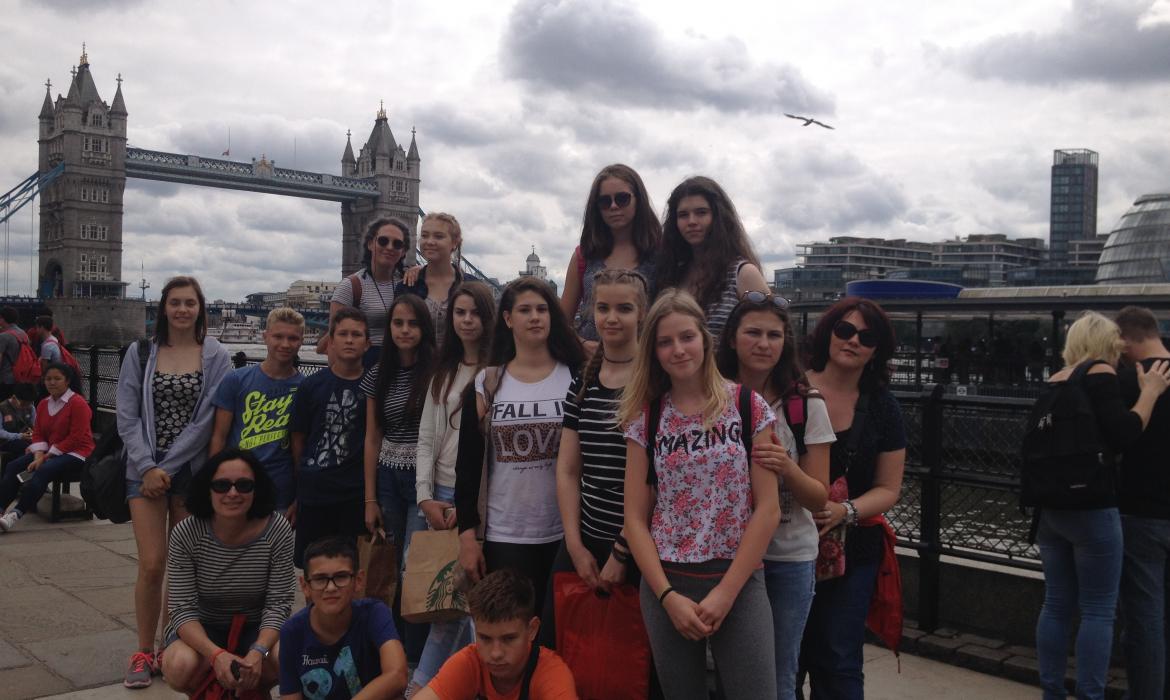
After spending three days in London, we set off for Devon. The people from SOL kindly sent a coach to meet us in front of our hostel (at first, the students thought that a coach pulled by horses would be coming). On our way to Devon, we stopped at Stonehenge that, for some, was a bit of a disappointment since you are not allowed to touch the stones. Nevertheless, we stopped, took pictures and listened to two of our students talking about the stones and the druids.

Finally, we came to Barnstaple where we met our host families. The next morning our students were excited talking about their hosts, the houses they were staying at, the food and all the cultural differences they had come across. Then their lessons began. At first, some of them were angry that they had to attend any courses and some feared they wouldn’t do well because it was all in English, but after they realized what the lessons were like, some of them became very competitive and wanted to show their best English in front of other students, from Romania, Bulgaria, Hungary, Serbia, Austria… The lessons were all communicative and students had to search for information on different topics while travelling through Devon, which we did after the lessons. The essential to it all was the emphasis on the active use of English, or as they put it at SOL: “Bringing the passive knowledge of the language to life is a key aim.”
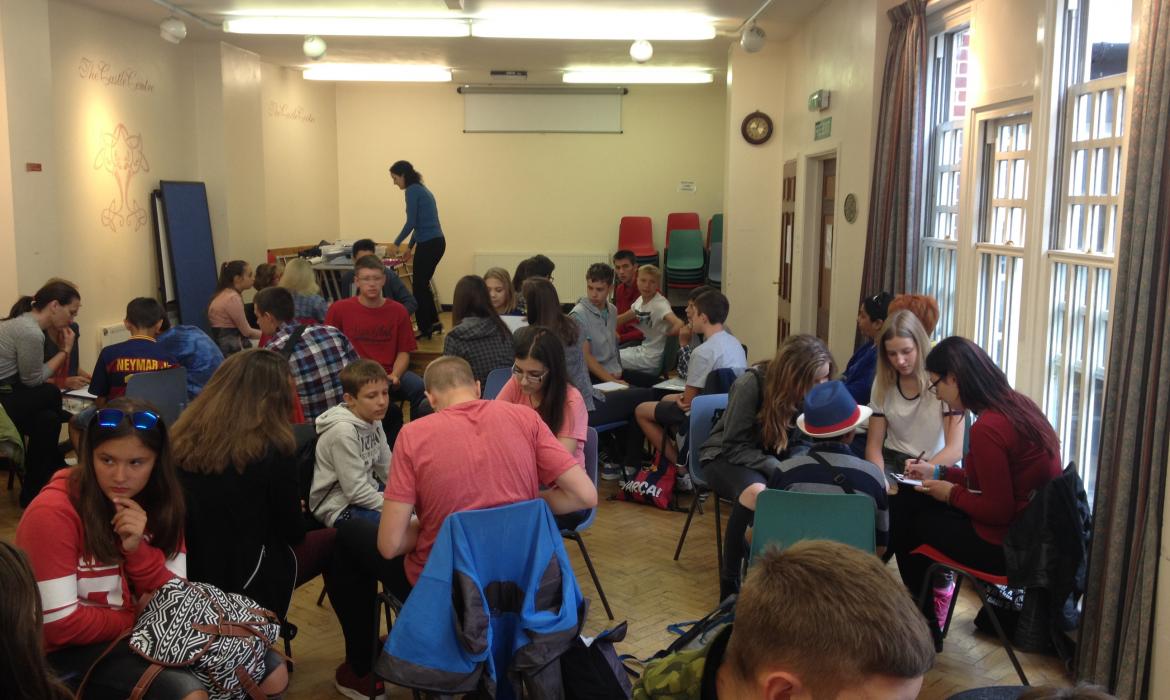
The teachers at SOL are friendly, helpful, understanding and true professionals. We, teachers, would usually sit behind the students stealing their teaching ideas. After the lessons were finished, and the students given their tasks for the following day, we would take trips. This year we visited Torbay, the English Riviera, and its centre, the town of Torquay. There, we took a ride on a Ferris Wheel (the smaller version of the London Eye) and after doing some shopping, we went on a boat trip to the fisherman's village of Brixham, which boasts the best fish and chips in England. However, we soon learned that the same was true of any place you visit along the coast. We also visited two small towns – Lynton, which is on a top of a hill and is connected to another town, Lynmouth, by a cliff railway (a water-operated funicular). We wanted to go for a swim in the ocean on a famous Devon beach in Woolacombe, but the notorious British weather showed its teeth so all we could do was to paddle-walk barefoot down the beach wearing our raincoats. Though we did see some people swimming, even children, we decided we weren't that brave. We also visited one very interesting village – Clovelly. What is interesting about it? I leave it to you to research it online and find out! Our teachers from SOL took us to Ilfracombe - a small village with a big and controversial statue of Verity by Damien Hirst, one of the most famous British artists, who lives in Ilfracombe and who, in fact, loaned the statue to the town for twenty years. Ilfracombe is also proud of its strange-looking theatre. They call it Madonna's bra, though, saying this to our students didn't mean much since they didn’t have a clue who Madonna was. And since being in England is synonymous with visiting at least one castle, SOL teachers took us to see Dunster castle which lies next to Exmoor National Park. In Dunster, everything is set as if they are expecting visitors for dinner at any time.
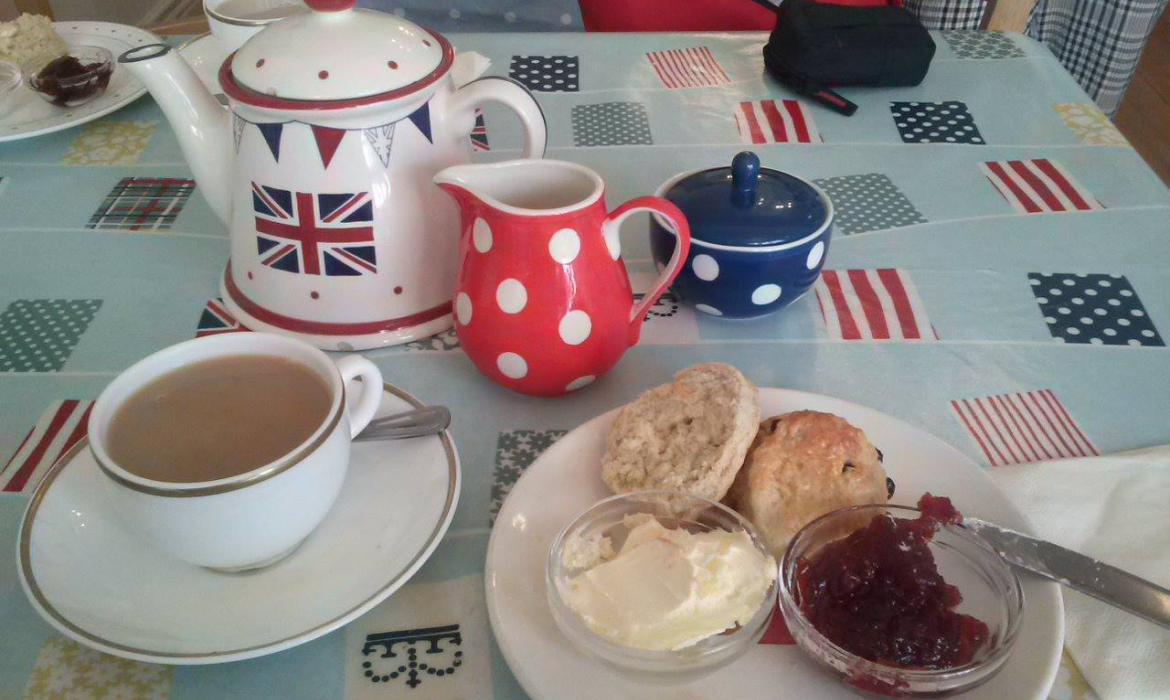
In all these places the children had to look for information for their final reports, interview local people by asking them questions about different topics, and then present all their findings on their last day. They made some really interesting posters and very good presentations. And since they had to do it in groups with the students from other countries, all the communication was in English, even during our trips by bus. We, the teachers, felt very proud of them and their use of English, because that was what they were there for – so they could use all the knowledge we had helped them acquire over the years.
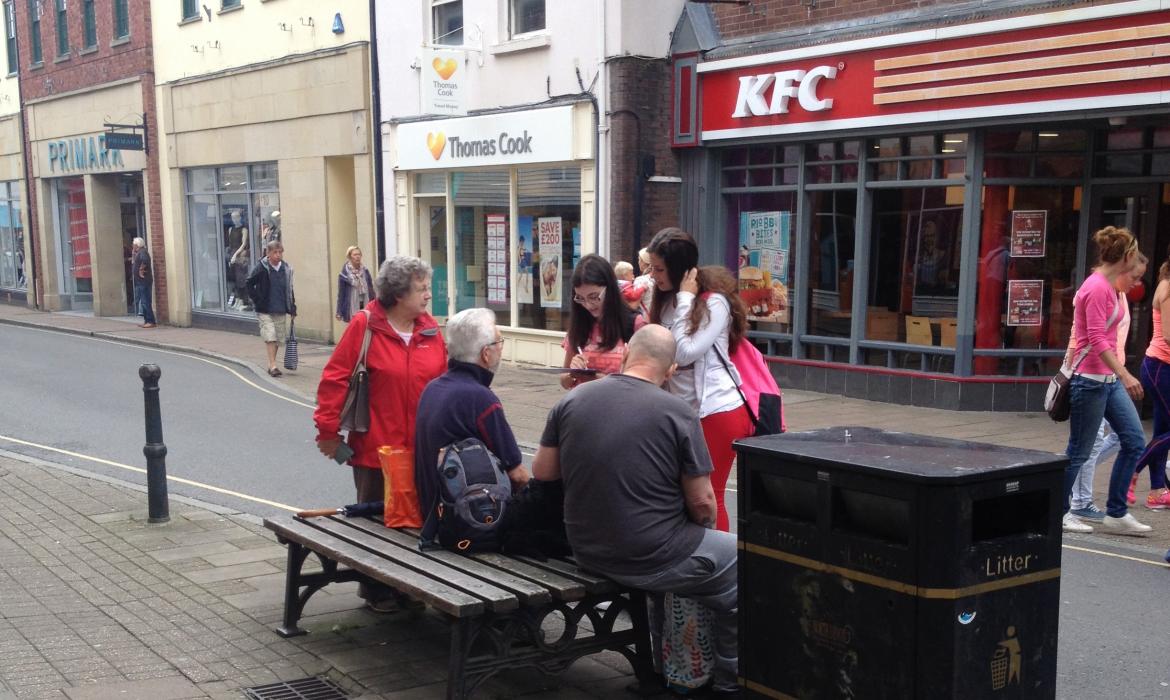
On our way back to Heathrow we visited Oxford, a university city always full of young people from all over the world taking English courses during summer. This was an opportunity for our young people to see the world in all its diversity. Speaking of diversity, our little group participated in this year's Diversity Festival in Barnstaple by performing the Eurovision song Let's Go Crazy! in front of all the visitors there, on a real stage!
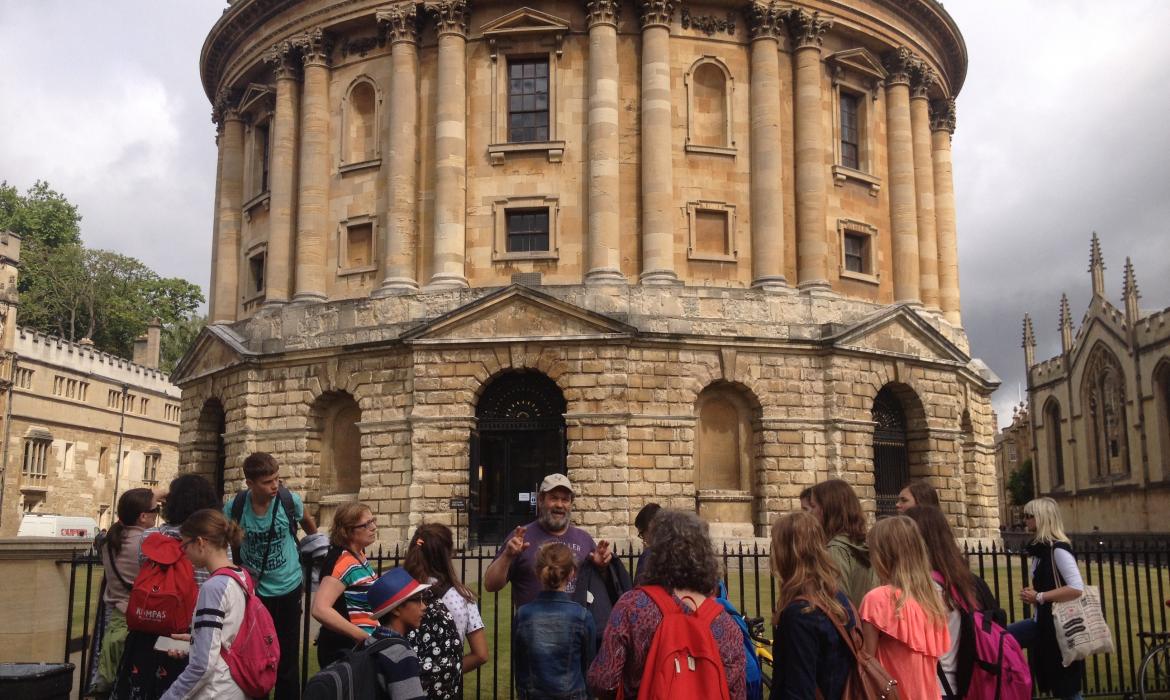
And who are the four enthusiastic (a bit crazy?) teachers from the beginning of the story? They are Daniela Kresić, Martina Ladan Filipović, Lana Duka Zupanc – the other SOL coordinator for Croatia, and me. Not crazy, just teachers.

